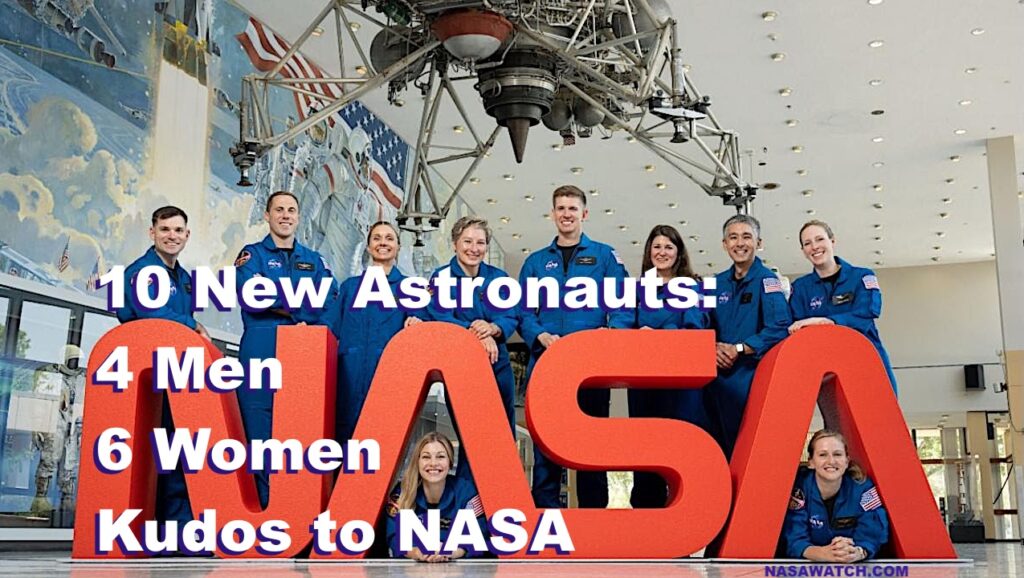Astronaut Long Duration Health Care and Ethics

Hearing – Human Spaceflight Ethics and Obligations: Options for Monitoring, Diagnosing, and Treating Former Astronauts – Hearing Charter
“The hearing will evaluate the impacts of long duration human spaceflight on astronaut health; federal obligations and ethical considerations related to those impacts; as well as potential options for monitoring, diagnosing, and treating retired and management NASA astronauts for conditions resulting from their federal service.”
– Subcommittee Discusses Healthcare for Former Astronauts, House Committee on Science, Space, and Technology Democrats
– Subcommittee Seeks Better Health Care for Former Astronauts, House Committee on Science, Space, and Technology
– Prepared Statement: Scott Kelly
– Prepared Statement: Richard Williams
– Prepared Statement: Chris Cassidy
– Prepared Statement: Michael Lopez-Alegria
– Prepared Statement: Jeffrey P. Kahn
 Keith’s note: It has been interesting to listen to astronauts and medical professionals talk about the various medical aspects of flying in space – especially what Scott Kelly has gone through as he re-adapts to life on Earth after his long flight. There is still so much we do not know. My first job at NASA in 1986 was at the Life Sciences Division at NASA Headquarters working on a large report documenting life science issues in space. A lot of the work had to do with crew health and safety. A lot of good research has been accomplished in the decades that have followed. We now know a lot more about how long duration spaceflight affects human health – but we do not know everything. Nor do we know how to deal with all of the potential risks – yet. As more research is done on the ISS, these issues will be better understood. When NASA sends humans on the #JourneyToMars they’re going to need to understand just what the risks are for a trip that could last years before they sign off on the missions. Some risks simply have to be accepted. Yet others can be avoided – easily. Like being pregnant.
Keith’s note: It has been interesting to listen to astronauts and medical professionals talk about the various medical aspects of flying in space – especially what Scott Kelly has gone through as he re-adapts to life on Earth after his long flight. There is still so much we do not know. My first job at NASA in 1986 was at the Life Sciences Division at NASA Headquarters working on a large report documenting life science issues in space. A lot of the work had to do with crew health and safety. A lot of good research has been accomplished in the decades that have followed. We now know a lot more about how long duration spaceflight affects human health – but we do not know everything. Nor do we know how to deal with all of the potential risks – yet. As more research is done on the ISS, these issues will be better understood. When NASA sends humans on the #JourneyToMars they’re going to need to understand just what the risks are for a trip that could last years before they sign off on the missions. Some risks simply have to be accepted. Yet others can be avoided – easily. Like being pregnant.
There is a movie coming out in August called “The Space Between Us“. Based on the movie trailer and the film’s website a pregnant astronaut files all the way to Mars and gives birth to a child – on Mars, dying in the process of childbirth. After lots of talk about how the boy could never adapt to Earth, they go ahead and fly him back to Earth anyway. Go figure. I just do not understand how any individual astronaut – or anyone at NASA – could ever allow a pregnant person to do this given how little we know about mammalian reproduction in a spaceflight environment. We do not fly pregnant astronauts now. This movie (based on what has been released) is going to be bioethics nightmare for any space life science expert who will be called upon to comment.
Had they changed the plot such that conception, development and birth all happened on Mars, they’d have been in much less risky territory since the 0.38G gravity on Mars may well be enough for normal development to proceed. Maybe. But having a pregnant woman – probably very close to term – do a multi-G entry and landing after 9 months of zero G gestation is just pushing the limits of ethics and credibility.









Stranger in a Strange Land (1961)
“… tells the story of Valentine Michael Smith, a human who comes to Earth in early adulthood after being born on the planet Mars and raised by Martians. The novel explores his interaction with-and eventual transformation of-terrestrial culture.”
The Space Between Us (2016)
“The first human born on Mars travels to Earth for the first time, experiencing the wonders of the planet through fresh eyes. He embarks on an adventure with a street smart girl to discover how he came to be.”
One, a heady and thoughtful book about differing intelligent species and their very different realities, the other, a vapid movie whose only goal is to make money while saying nothing of importance.
I have been wondering for some time, why exactly do we know so little about mammalian gestational development in space? I am really surprised NASA and/or the Russian government haven’t done more testing on rats or mice on ISS, impregnating them there and studying the effects of full gestational development in microgravity.
It may be a bioethics nightmare, but better to have the conversation than not.
And here I thought it was Neil Tyson’s role to slam near future scifi movies for scientific/policy inaccuracies!
There are a lot of things we can only guess about the plot of a film that hasn’t been released yet but my understanding of it is:
1) The astronauts are not from NASA. The Mars base is a result (in the style of SpaceX and Mars One) of a visionary private individual’s efforts. Thus there is a certain degree of plausibility that the Mars Child’s mother might not have the same training and mental disciplines as a NASA-trained astronaut;
2) The astronaut was unaware that she was pregnant at the time of launch (<4 weeks after conception) and it was only discovered when the ship’s on-board medic discovered the pregnancy during a routine scan.
At which point in reality a termination would have been performed (if possible) with nary a word in public lest the natives be a-troubled.
Unless the mother refused consent.
Of course, there is some indication (from what I’ve seen) that Keith’s point about questionable ethics may be addressed in the film.
So long as they keep Britt Robertson (same actress who played Casey in “Tomorrowland”) in focus, I don’t care how inaccurate the movie is in terms of biology or bioethics.